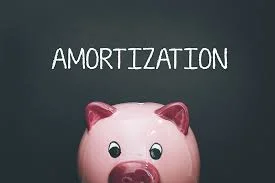When thinking about refinancing your home, understanding mortgage rates is key. Refinancing can save you money on interest or help you achieve other financial goals, but choosing the right time to lock in a rate is crucial.
Now we’ll break down what you can expect from today’s mortgage rates for refinancing, how they’ve changed, and whether it’s a good time for you to refinance.
Mortgage Rates Today
As of today, mortgage rates for refinancing have gone up a little since last week. These rates can change based on things like inflation, the Federal Reserve, and overall market conditions.
If you’re planning to refinance, it’s important to keep an eye on these rates because even small changes can affect how much you pay over time.
What Are Mortgage Interest Rates Doing Today?
Mortgage interest rates have risen slightly, mostly due to inflation and economic factors. The Federal Reserve’s actions to control inflation can cause rates to go up, so expect some changes in the coming weeks.
Should I Lock in My Mortgage Rate Today or Wait?
Deciding whether to lock in your mortgage rate depends on your situation. If you think rates will keep going up, locking in now might save you money. But if you believe they’ll drop, you may want to wait before making a move.
Mortgage Refinance Rates Today
Like purchase rates, mortgage refinance rates have also increased slightly. Each lender may offer different rates, so shopping around can help you find a good deal.
Are Refinance Rates Dropping?
Refinance rates have risen recently, and future changes depend on how the economy performs. If inflation decreases, rates could come down, but for now, they remain higher than they were a few months ago.
How Have Refinance Rates Changed This Week?
Compared to last week, refinance rates are up slightly, mainly due to economic uncertainty and the Federal Reserve’s efforts to manage inflation. Timing is important when refinancing, so keep an eye on these changes.
Mortgage Calculator:

Before refinancing, it’s a good idea to use a mortgage calculator to see how much you could save. Input your current loan details, the new refinance rate, and the loan term to estimate your new monthly payment and overall savings.
How Have Mortgage Rates Changed This Week?
Mortgage rates have risen a bit this week because of inflation data and the Federal Reserve’s recent decisions. These factors affect mortgage rates and can influence how much you’ll pay in the long run.
How Does Inflation Affect Mortgage Rates?
Inflation pushes mortgage rates higher as lenders raise rates to cover their costs. When inflation cools, rates often drop, making it a better time to refinance.
FAQs:
Here are some common questions about mortgage rates and refinancing:
How Do You Get the Lowest Mortgage Rate?
To get the best mortgage rate, maintain a good credit score, keep your debt low, and compare different lenders. Borrowers with strong credit usually qualify for lower rates.
What Are the Current 15-Year Mortgage Rates?
As of today, 15-year mortgage rates are lower than 30-year rates, but they come with higher monthly payments. This option is great if you want to pay off your loan faster.
How Does the Federal Reserve Affect Mortgage Rates?
The Federal Reserve doesn’t directly set mortgage rates, but its actions impact borrowing costs. When the Fed raises rates to control inflation, mortgage rates often rise as well.
Should I Refinance My Mortgage When Rates Are High?
Refinancing when rates are higher can still make sense in some cases. For example, switching from an adjustable-rate mortgage (ARM) to a fixed-rate mortgage can offer more stable payments even if the rate is slightly higher. Additionally, refinancing to consolidate debt or access your home equity can still provide financial benefits.
Best Mortgage Lenders for Bad Credit
If you have bad credit, you can still find lenders that offer mortgage refinance options. You may pay a higher rate, but shopping around can help you get the best deal possible.
6 Times When Refinancing Makes Sense
Even when mortgage rates are high, refinancing can still be a smart choice in these cases:
- Shortening Your Loan Term: A shorter loan can help you pay off your home faster.
- Locking in a Fixed Rate: Switching to a fixed-rate mortgage gives you predictable payments.
- Tapping into Home Equity: Refinancing allows you to use your home’s value for other financial needs.
- Consolidating Debt: Refinancing can lower interest on high-cost debts.
- Getting Rid of PMI: If you have enough home equity, refinancing can eliminate private mortgage insurance (PMI).
- Lowering Monthly Payments: You can refinance to lower your monthly payment and improve cash flow.
Which Is More Important: Interest Rate or House Price?
Both the mortgage rate and home price affect your costs when refinancing. A lower rate reduces monthly payments, but the loan amount also plays a role in your long-term savings. Compare both factors to get the best deal.
In conclusion, today’s mortgage rates for refinancing are slightly higher, but that doesn’t mean it’s not a good time to refinance. By watching the market and comparing your options, you can still find ways to save, whether by locking in a lower rate, accessing your home equity, or shortening your loan term.



Thank you for your articles. They are very helpful to me. May I ask you a question?